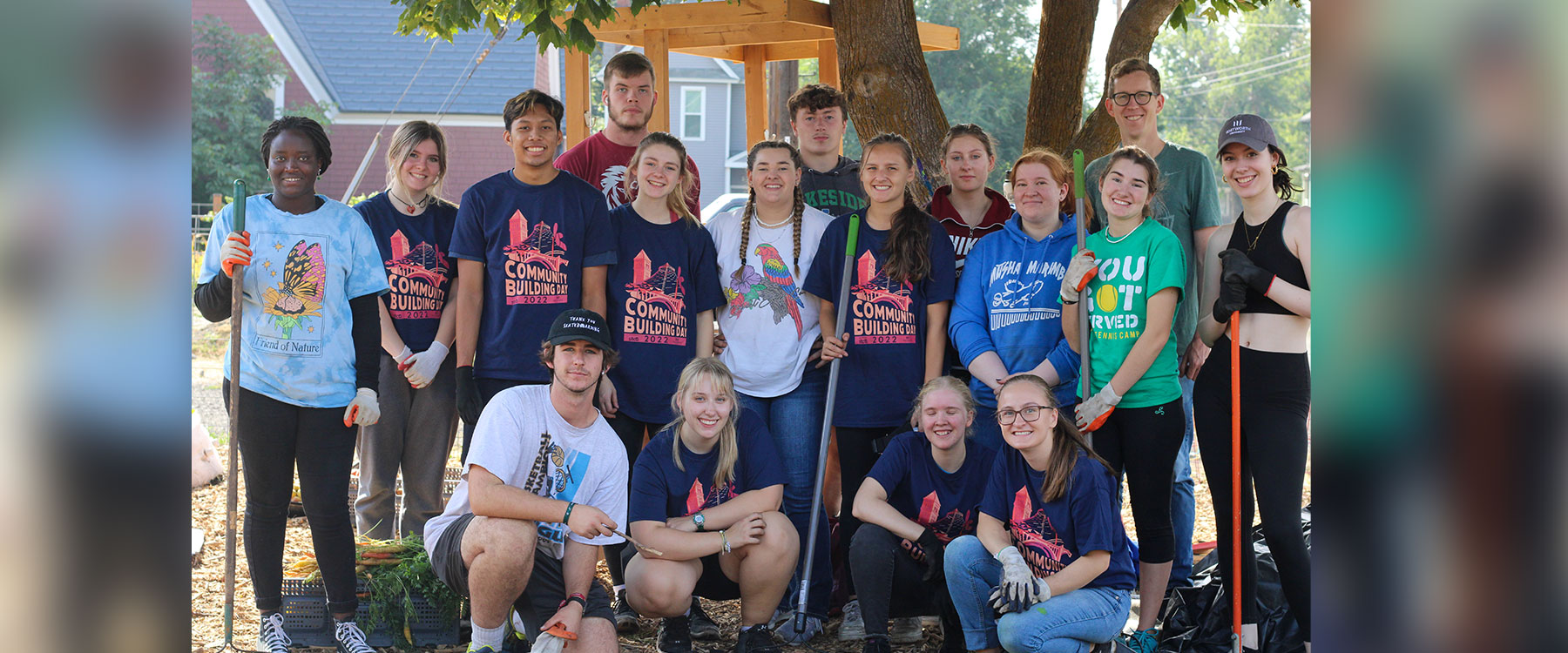Students
Service in Your Class
Community engaged learning is a teaching and learning approach integrating academic instruction, meaningful community service and reflection that engages students in civic responsibility and critical and creative thinking.
Community engaged learning at Whitworth features four major elements:
- Integration of service and the curriculum
- Expands learning beyond the classroom and into the community
- Reflection connects course themes with real world experiences
- Reciprocity ensures mutual benefit for students, faculty and community partners
Learning outcomes for Whitworth service-learning courses will include:
- Students will be able to articulate one or more needs of the Spokane community and identify one or more factors that create those needs.
- Students will be able to explain ways that they can have an impact on their community.
- Students will be able to apply course content to community-based experiences.
- Students will be able to identify a community organization's mission and communicate effectively on its behalf.
- Students will be able to articulate the different identities and cultural perspectives of community groups.
- The above learning outcomes apply to all service-learning courses at Whitworth University and are derived from the essential learning outcomes of the LEAP initiative.
Student Leadership
Community engagement advocates are given a unique opportunity for students to engage in all aspects of developing and implementing programs for service-learning opportunities and experiential education. Students are recruited and trained to lead asset-based programs focused on youth and community development. These programs are designed to integrate academic service-learning and provide a student-led approach to transforming communities both on and off campus. Student leaders are challenged to grow personally and professionally throughout their work by creating opportunities for fellow students and community members to see themselves as agents of meaningful social change.
Hiring for CEA positions begins in February for the following academic year. All positions will be posted to Handshake as they become available.
Dornsife Summer Service Cohort (Paid)
The Dornsife Center for Community Engagement invites students interested in working to build our local community this summer to join the West Central Summer Service Cohort. Cohort members will be trained by the Dornsife Center to comprehend service in the local community through an asset-based lens. Then they will work directly with a West Central non-profit (Partner) throughout June, July and August.
These are considered "on-campus" positions, however, the majority of your time will be spent at the agency in the West Central neighborhood you are matched with. During the hiring process, all applicants will have the opportunity to rank the non-profits they are most interested in working for but all placements will ultimately be decided by the Dornsife Center and the Partners after all interviews have taken place. Once an offer is made, a candidate will have a choice to confirm or deny their desire to work with the assigned non-profit. If the offer is declined the student cannot be guaranteed an offer from another non-profit and their spot in the cohort may be forfeited.
The West Central Summer Service Cohort will consist of 8-10 current Whitworth students who will have a chance to learn together about their own leadership strengths and the strengths of the West Central neighborhood. We will have monthly dinners to check-in as a cohort and to reflect on the service experiences. There will also be a cohort closing ceremony at the end of the summer. These in-service experiences will also be paid.
While serving with their assigned West Central Partner on-site, each cohort member will report to the agency-identified supervisor to discuss the details of their daily service requirements.
Positions will post to Handshake in the spring semester.
Eligibility requirements:
- Students must be enrolled for courses in the fall following the summer.
- Federal Work Study eligible students are preferred, but not required.
- Must reside in or close to Spokane for the summer.
- Access to reliable transportation is helpful, but not mandatory.
